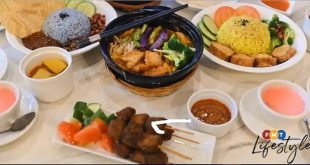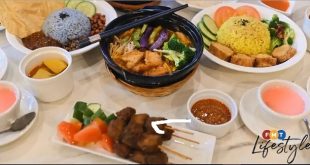Tea is a popular and cultural drink in many parts of the world, but the process, from planting to cup, is still shrouded in controversy.
Although beer aficionados love it, many people are unaware of the poor working conditions in the tea plantations or the unfair prices forced on the farmers. But the owners of two local tea brands, HojichaYa and Uncang Tea, hope to change that. Instead of getting their resources from intermediaries, HojichaYa co-founders Cheng Mun Yan and Andri Ciang, and Uncang’s founder Jenny Ho are communicating with farmers. Picking tea leaves is backbreaking but unpaid work: an investigation by the Guardian last year found that tea growers in Sri Lanka had to pick 18kg a day to make ends meet daily work of 1,000 rupees (15 .60 RM) stated by the government.
Workers reportedly complain of poor working conditions, wage theft and inability to escape debt traps. Accusations of exploitation have hit many household names, including Tetley, Twinings and Lipton, in recent years.
Speaking on International Tea Day last Tuesday, Cheng, Ciang and Ho said they therefore made it their goal to ensure their supplies were ethically sourced. Instead of buying the cause of the main causes, they go from farmers to ensure correct price. This promises that no number of three marks can be transported.
Cheng and Ciang learnt the basics of harvesting and processing tea leaves firsthand by living on a farm in Japan for a few months.
“From that experience, we managed to gain what most people wouldn’t just by drinking tea or researching online. We learned how hard they work and how to enjoy tea,” Ciang said. He added that HojichaYa sources some of its tea from Wazuka, a town not far from Kyoto with a population of 3,000 to 4,000. It produces 70% tencha, a type of green tea used to make matcha in the Kyoto region. However, the amount of tea produces tea and wazuka decreases because work is not good, see ciang.
Hoyichaya and Japanese tea, offering farmers to Wachuka to use the fine benefit of those who have come. Meanwhile, Uncang Tea directly deals with specific farmers to prepare its tea blends, Ho said, explaining that about 80% of the company’s ingredients come from farms in Malaysia.
“This helps us to bypass middlemen and build strong relationships with our young people, allowing for team growth. “We support our producers by giving them the right price for their products, while giving them the opportunity to benefit from a large market by maintaining access to us,” he said.
According to Ho, trading with tea producers is the best way to support them, since fair trade certification is not widespread in Malaysia. “We understand the presence of migrant workers in the agricultural sector and ensure that these workers receive fair wages and work under reasonable conditions,” he concluded.

